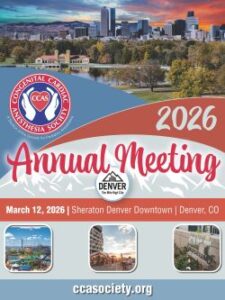Author: Sana Ullah, MB, ChB, FRCA – Children’s Medical Center, Dallas
What is the MOST COMMON indication for surgical or catheter-based interventions following an arterial switch operation?
Correct!
Wrong!
Question of the Week 324
The arterial switch operation (ASO) was introduced in 1975 and is now the standard surgical procedure for simple and complex forms of Transposition of the Great Arteries (TGA). Long-term survival is over 95% at 10 and 25 years with an excellent quality of life. Two recent single-center studies investigating the long term complications up to 40 years after an ASO have confirmed previously published findings and reveal new insights, emphasizing the need for life-long follow-up.
The most common indication for surgical or catheter-based interventions after an ASO is right ventricular outflow tract obstruction (RVOTO). RVOTO is found most frequently at the level of the branch pulmonary arteries (PAs) but also at the pulmonary valve and main pulmonary artery. Balloon dilation is effective but has a high recurrence rate of re-stenosis which then necessitates stent placement. The onset of pulmonary stenosis can be as early as 30 days or as late as 10 years after the initial operation. There are several reasons hypothesized as the cause of RVOTO. One potential cause is the LeCompte maneuver which when performed by the surgeon relocates the pulmonary trunk and branches over the aortic root. If the aortic root or ascending aorta becomes dilated, there may be resultant PA compression. Other potential contributing factors to RVOTO include extent of mobilization of the PAs, inadequate dissection of the branch PAs, age at the time of operation, and size mismatch of the switched great vessels.. In one recent study, surgical correction of RVOTO was required in 50% of patients and catheter-based interventions in 76% of patients who had previously undergone an ASO.
The second most common indication for reoperation or reintervention is neoaortic valve regurgitation with neoaortic root dilatation. Approximately 15%-18% of patients require surgical intervention with neoaortic valve replacement or repair and/or ascending aorta replacement, such as a Bentall procedure.
Coronary stenosis and coronary ischemia necessitating revascularization are the most common causes of early mortality, but occur rarely, in approximately 2-6% of patients, as long-term complications after an ASO.
References
(1) Van der Palen RLF, Blom NA, Kuipers IM, et al. Long-term outcome after the arterial switch operation: 43 years of experience. Eur J Cardiothorac Surg. 2021; 59(5): 968-977.
(2) Fricke TA, Buratto E, Weintraub RG, et al. Long-term outcomes of the arterial switch operation. [Published online ahead of print February 11 2021]. J Thorac Cardiovas Surg. 2021. doi:10.1016/j.jtcvs.2021.01.134.
The most common indication for surgical or catheter-based interventions after an ASO is right ventricular outflow tract obstruction (RVOTO). RVOTO is found most frequently at the level of the branch pulmonary arteries (PAs) but also at the pulmonary valve and main pulmonary artery. Balloon dilation is effective but has a high recurrence rate of re-stenosis which then necessitates stent placement. The onset of pulmonary stenosis can be as early as 30 days or as late as 10 years after the initial operation. There are several reasons hypothesized as the cause of RVOTO. One potential cause is the LeCompte maneuver which when performed by the surgeon relocates the pulmonary trunk and branches over the aortic root. If the aortic root or ascending aorta becomes dilated, there may be resultant PA compression. Other potential contributing factors to RVOTO include extent of mobilization of the PAs, inadequate dissection of the branch PAs, age at the time of operation, and size mismatch of the switched great vessels.. In one recent study, surgical correction of RVOTO was required in 50% of patients and catheter-based interventions in 76% of patients who had previously undergone an ASO.
The second most common indication for reoperation or reintervention is neoaortic valve regurgitation with neoaortic root dilatation. Approximately 15%-18% of patients require surgical intervention with neoaortic valve replacement or repair and/or ascending aorta replacement, such as a Bentall procedure.
Coronary stenosis and coronary ischemia necessitating revascularization are the most common causes of early mortality, but occur rarely, in approximately 2-6% of patients, as long-term complications after an ASO.
References
(1) Van der Palen RLF, Blom NA, Kuipers IM, et al. Long-term outcome after the arterial switch operation: 43 years of experience. Eur J Cardiothorac Surg. 2021; 59(5): 968-977.
(2) Fricke TA, Buratto E, Weintraub RG, et al. Long-term outcomes of the arterial switch operation. [Published online ahead of print February 11 2021]. J Thorac Cardiovas Surg. 2021. doi:10.1016/j.jtcvs.2021.01.134.
